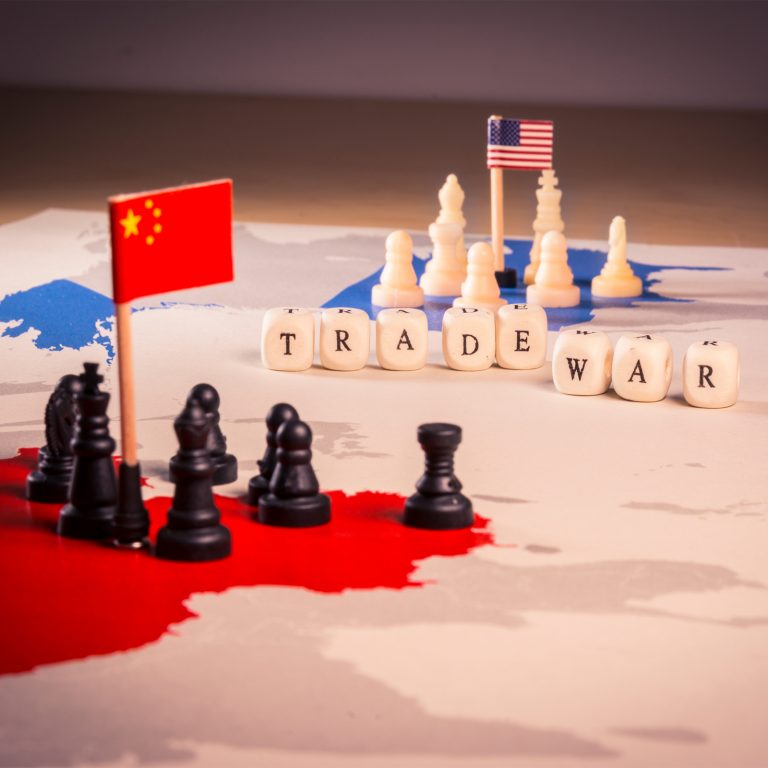A Chinese Government-Controlled Bitcoin Alternative Is Reportedly in the Works
source: Bitcoin News
2018. Dec. 18. 10:55

In the midst of a sino-U.S. trade war, the People’s Bank of China is working to develop its own cryptocurrency prototype. It apparently believes this centralized digital asset can ultimately trump BTC and perhaps even the U.S. Dollar.
Also read: Bibox Buys 100% Share of Decentralized Exchange Dex.top
A Love-Hate Relationship With Cryptocurrency
The government of China has been infamously hostile towards cryptocurrency-related economic activities like crypto trading, mining, P2P loans, and ICOs. But this doesn’t mean that the Chinese government disapproves of the underlying idea of Bitcoin. Although Xi Jinping’s administration has done much to kill the domestic cryptocurrency market, it’s currently at work developing its own secure, blockchain-based digital currency.
Reports reveal that the People’s Bank of China (PBoC) has registered 78 digital currency patents, of which 44 are blockchain related, since at least 2016, ranking the PBoC as the fifth most prolific patenter in the space, as has been reported by China’s IPR Daily.
Further, the PBoC has been actively hiring developers and economic specialists for its Beijing-based Digital Currency Institute, whose stated goal is to issue and distribute a blockchain-based currency.
Unprecedented Control
The project was originally conceived by the PBoC’s deputy governor Zhou Xiaochuan, with the intention of “protecting” China from Bitcoin, an asset it couldn’t control. In contrast with the decentralized digital currencies we know and love, the PBoC’s alternative could, in fact, allow the Chinese government to exert even greater control over the lives of the country’s citizens.
The current Deputy Governor of the Bank, Mr. Fan Yifei, announced earlier this year that once implemented, the Chinese-controlled cryptocurrency would replace the country’s fiat currency and would ultimately help the bank curtail risks associated with money laundering and other crimes.
Some of the patents filed by the PBoC reveal what the Chinese government has in mind for the future. According to a Bloomberg review of recent patent filings, the government not only wants to track its citizen’s everyday transactions, but aims to force banks to share all data related to potential borrowers before authorizing any type of transaction.
Also, the PBoC would be immediately able to prohibit any financial institution from dealing with “blacklisted” companies. Although there is no evidence that the bank intends to deny individuals from accessing financial services, the recent efforts by the Chinese government to establish a social credit system may point to this possibility.
Trump’s Administration May Hasten China’s Digital Currency Development
With the U.S. unrelenting in its current trade war against China, bankers and politicians alike are becoming increasingly interested in accessing an alternative payment method that would reduce the United States’ dominance of international financial markets, all while rumors of a Chinese-backed crypto are gaining momentum.
The recent arrest of Huawei’s CFO Sabrina Meng Wanzhou in Canada at the behest of the U.S. government has rekindled this discussion in China. Meng was arrested under charges of U.S.-imposed international sanctions on Iran, charges that may involve HSBC and the Standard Chartered Bank.
As reported by the South China Morning Post on Dec. 17, Richard Jerram, chief economist at Bank of Singapore, declared:
President Trump is promoting an ‘America first’ policy, so you cannot rely on America to keep its borders open for trade, or to rely on it to support the World Trade Organization or the International Monetary Fund. So you can understand why countries are looking for substitutes … In a world of fracturing of multilateral order, countries will be looking to reduce their dependence on the US.
Even though the Chinese yuan only accounts for 1 percent of the international payments market and 1.8 percent of all reserve assets held by central banks, China contributed 27.2 percent of total global GDP growth in 2018 alone. This performance makes it the single largest contributor to the current global economy despite the ongoing U.S. trade war and depreciation of the Chinese yuan.
Its position as an economic powerhouse and the current climate of political tension with the United States may compel the Chinese government to redouble its efforts to end U.S. hegemony by attacking the U.S. dollar.
Given that the world’s economy is slowly migrating towards digital systems, it wouldn’t be too farfetched to think that an alternative to the U.S. dollar might take the form of a digital asset much like the Chinese government’s proposed cryptocurrency.
Will China roll out its own cryptocurrency? Do you think such a digital asset could end up having consequences in the world stage? Let us know in the comment section below.
Images courtesy of Shutterstock.
Need to calculate your bitcoin holdings? Check our tools section.
The post A Chinese Government-Controlled Bitcoin Alternative Is Reportedly in the Works appeared first on Bitcoin News.





